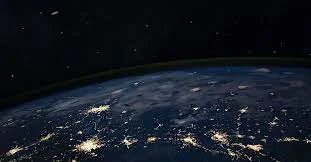NASA employs clergymen to assess the believers' reaction Has life been discovered on other planets?
NASA has announced that it will hire 24 religious scholars from different faiths and denominations to assess the reaction of humans when finding new life on other planets, as well as to learn how this discovery may affect ideas about deities and creation among adherents of all faiths.
According to Britain's Daily Mail, NASA has decided that it will hire 24 theologians to participate in the program at Princeton University's Center for Theological Research (CTI) in New Jersey, to which it awarded $1.1 million in 2014.
In a strange paradox, the American agency, whose employees and scientists are mostly atheists and agnostics, will resort to the clergy, to help it assess the reaction of humans if alien life is found on other planets, and how this discovery might affect the faith of people of different faiths.
While about a third of Americans believe in the existence of aliens, astronomer David Weintraub, in his book Religion and Life Extraterrestrial, revealed the results of a survey that showed that 55% of atheists believe in the existence of aliens, followed by 44% of Muslims, and nearly 37% of Jews.
NASA intensifies its exploration missions
NASA has begun a new era in the search for life in outer space, following the launch of the James Webb Space Telescope, which is said to be the most powerful telescope launched into space on December 25 from the European Spaceport in French Guiana in cooperation with the European Space Agency. and Canadian.
The gigantic project, which took 25 years and cost about $10 billion to build, is a next-generation instrument designed to dive into the cosmos, with capabilities that exceed and complement those of Hubble currently in space. While scientists expect James to help bridge a 300-million-year-old gap and get closer in time to the Big Bang, the moment when the universe was formed 13.8 billion years ago, according to Thomas Zurbuchen, the assistant director of the Scientific Missions Directorate at the US Space Agency, NASA.
It is reported that "Hubble" had revealed the 13.4 billion-year-old mysteries, which were represented by a clustered chain of a galaxy that is currently the oldest and most distant object ever observed.
Is there life in space?
Over the past decades, researchers have been searching for signs of confirmed life or even extraterrestrial civilizations, through a lot of research and space missions that are still continuing to discover more exoplanets eligible to host life of some kind, but to no avail so far ( As far as we know).
However, the images and discoveries coming from Mars, especially the images sent by NASA's "Perseverance" spacecraft, indicate the possibility of life 3.7 billion years ago in the "Jesero Crater", which was filled with water at that time, according to the British newspaper, "The Telegraph".
As mentioned, the initiatives to discover life in outer space are many and varied between government tasks and initiatives backed by the private sector, led by the Breakthrough Listen initiative funded by Russian businessman Gory Milner, which is the largest scientific research program ever to search for evidence of the existence of extraterrestrial civilizations. Through the largest eavesdropping project throughout the Milky Way.
What do religions say?
Priest and theologian with a PhD in biochemistry from Cambridge University, Andrew Davison, is among 24 theologians to be hired by NASA. "Religious traditions can greatly influence the attitude of people," Davidson wrote in a blog on the University of Cambridge's website. "Religious traditions will be an important factor in how humanity acts in validating this kind of life elsewhere." "Many teachings in different religions indicate the possibility of life in outer space," he added.
On the other hand, Davison is not the only theologian who does not believe that the idea of extraterrestrial beings is impossible. Doulia de Mello, an astronomer and professor of physics at the Catholic University, also noted that there were many theology students who often asked theoretical questions about intelligent life in the universe. "There is nothing that says otherwise," Milo said. "If we are a product of creation, why is there no life on other planets either. Nothing says otherwise?"
However, not all theologians agree with the idea of life on other planets. When asked if there is life beyond Earth, in a 2008 interview, Albert Moehler, president of Southern Baptist Theological Seminary, said, "The answer is no, it's very speculative. We have no reason to believe there is another story in space."
It should be noted that the Islamic religion does not oppose the idea of life in outer space. Many Islamic scholars believe that there can be creatures in the sky that God knows best about their quality and number, just like the creatures of the earth whose number is known only to God.




Good
ReplyDeletegood
ReplyDeleteGood job of nasa employees
ReplyDeleteGood
ReplyDelete